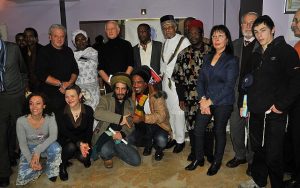
Awakening to the underlying subjectivity of any reflexive process and openness to intersubjectivity allows criticism and self-criticism that will condition the emergence of African Judaism – a requirement to which it must respond if it wants to grow. in the sub-Saharan region.
Ephraim Isaac sees an ideological and political environment that marks the emergence of a so-called “Judeocentric” discourse on – and thus outside – the African spirit, up to the inner convolutions of a Jewish thought of rejection and, in particular, affairism against the contribution of learned thinkers to the material which constitutes a non-negligible part, and no doubt more fruitful still.
According to Jacob Oliel, this work must go through inevitable socio-identity reflections. Over time, the intention has been to highlight the empowerment of Jewish thought in an African context.
For Maurice Dorès, African Judaism can only find its foundations in its own cultures.
African Judaism can not be reduced to a (re) compliant and / or revisionist formulation of ancestral knowledge or mythological discourse – these can serve, at best, as supports for a free critical discussion.
As for Tudor Parfitt, it is more a question of aiming at the universal from the specific experiences and special concerns of the African Jew. Which means that, rather than refuse to risk disguising the turn of mind of the African by seeking to accommodate it with the categories of a Jewish way of thinking that is extra to him.
